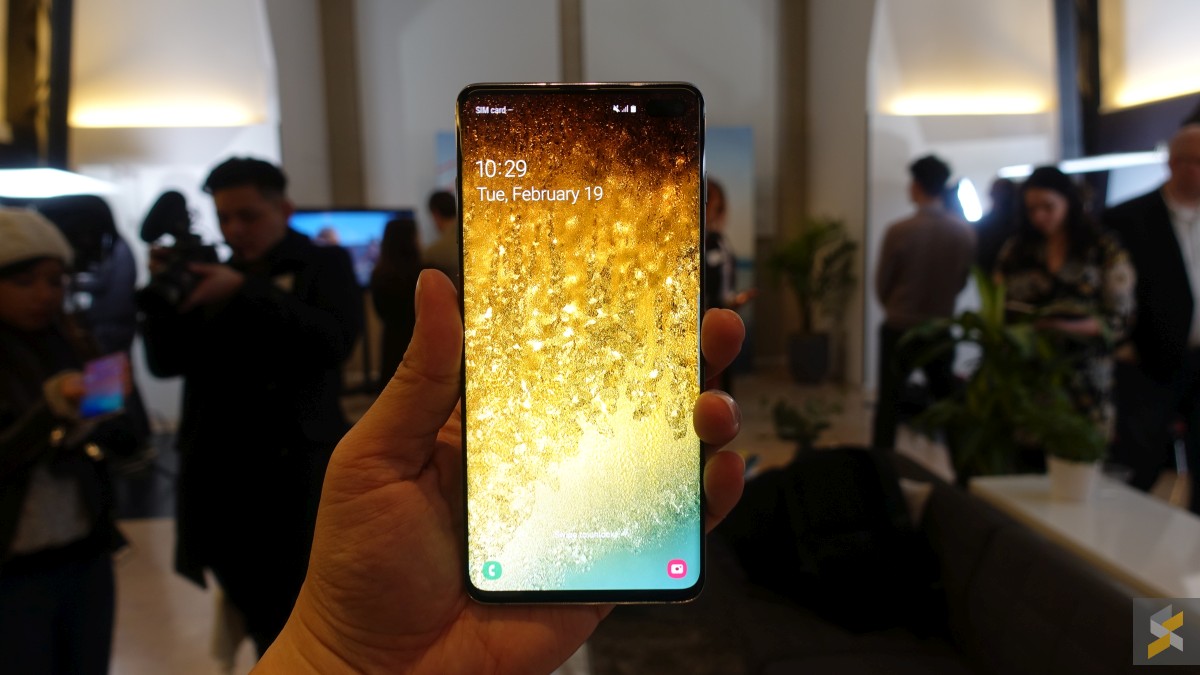
This is it. Easily the biggest smartphone launch of this month. The highly anticipated flagship handset from the biggest smartphone maker in the world. It’s the Samsung Galaxy S10, and here’s everything you need to know about it.
Samsung Galaxy S10 and S10+
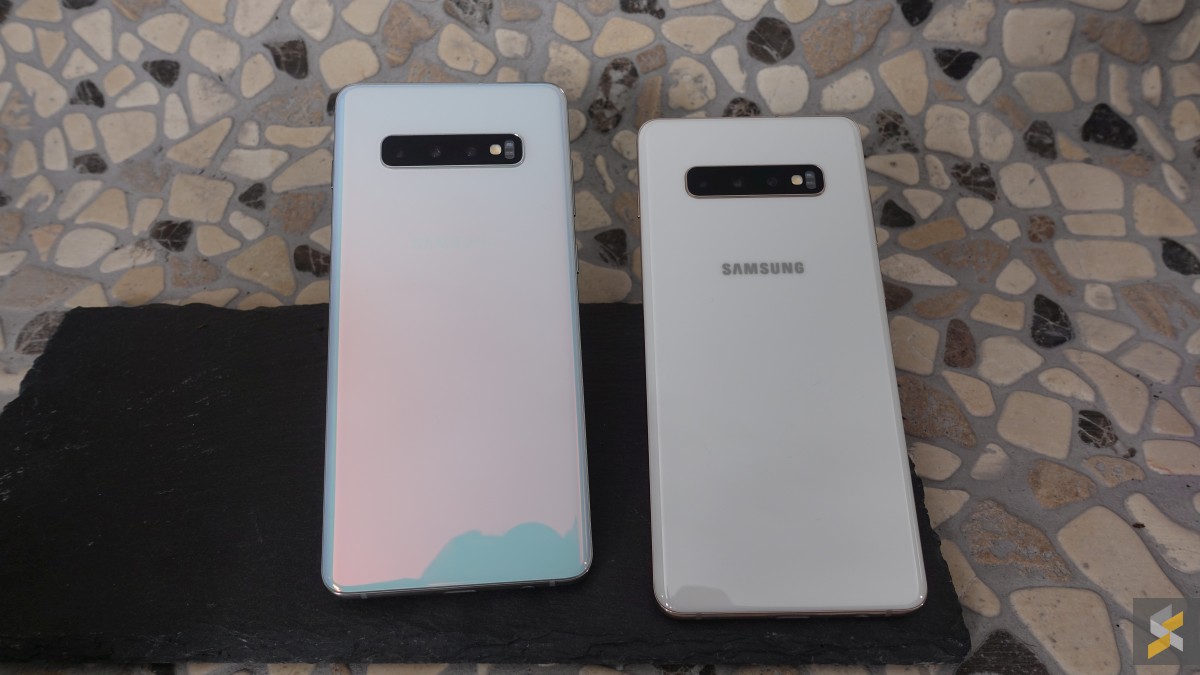
Obviously, the two main stars are the Galaxy S10 and its larger brother, the S10+. These have been Samsung’s standard flagship duo for the third year running, and they’re pretty much exactly the kind of devices you’ve come to expect from the South Korean electronics giant: Two phones that differ primarily in their size, but share a lot of the core specs that define a Galaxy S flagship.
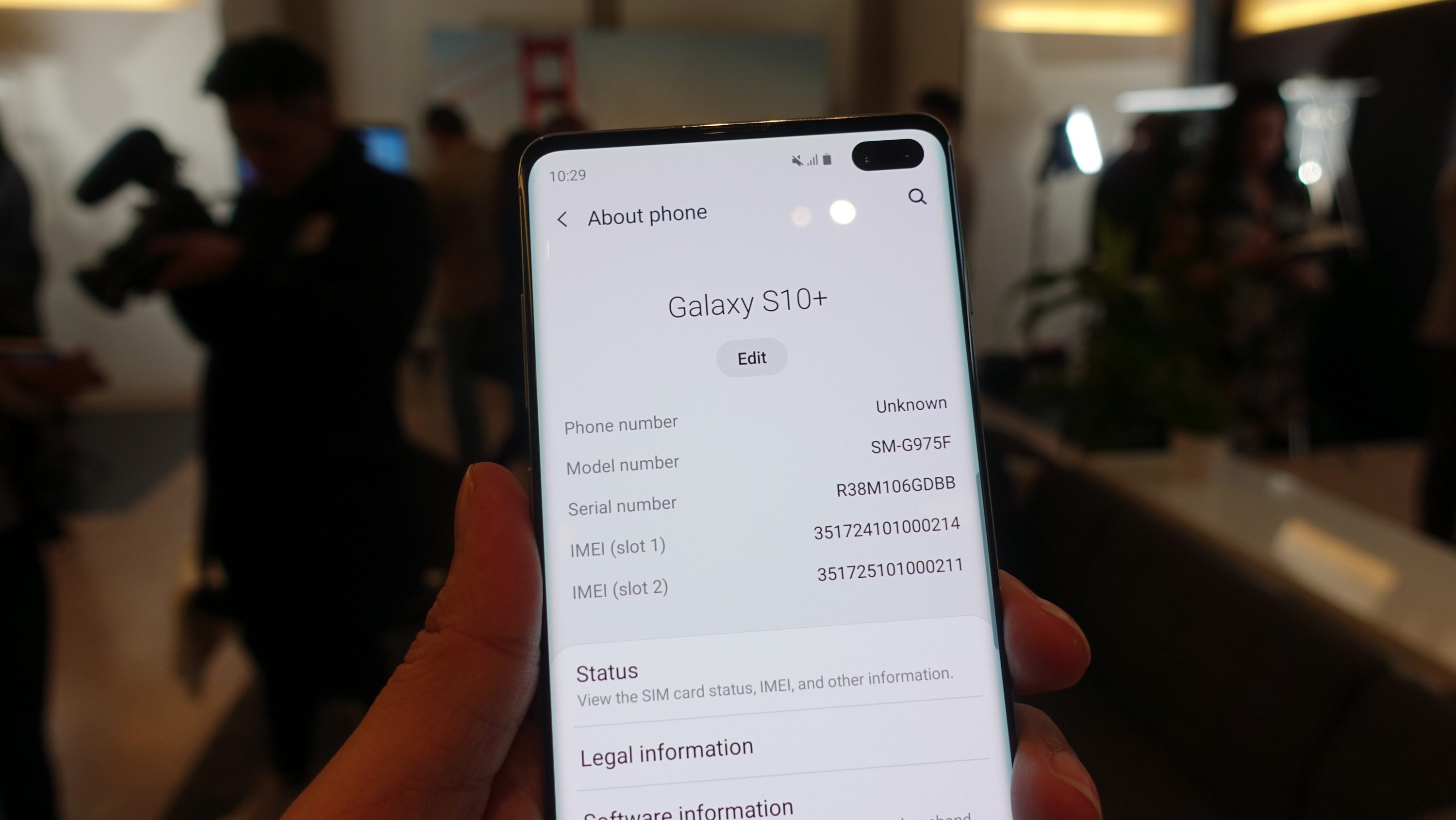
Naturally, both handsets will come with Samsung’s top-of-the-line 8nm Exynos 9820 octa-core processor and the company’s gorgeous new Quad HD+ Curved Dynamic AMOLED Infinity-O displays, which by the way are HDR10+ certified. Where they differ is in memory and size.
On the Galaxy S10+, you’ll find a massive curved screen up front that measures 6.4 inches diagonally, featuring an oblong punch hole at the top corner. The S10, on the other hand, settles for a smaller 6.1-inch panel with a single circular punch hole at the top corner.
Besides that, Samsung has also given these devices different memory configurations. On the S10, you will be getting 8GB of RAM with a choice of either 128GB or 512GB of internal storage. With the larger S10+, you have a choice of either 8GB or 12GB of RAM, with either 128GB, 512GB or a whopping 1TB of internal storage. One terabytes of internal storage — that’s mad. Mad awesome.
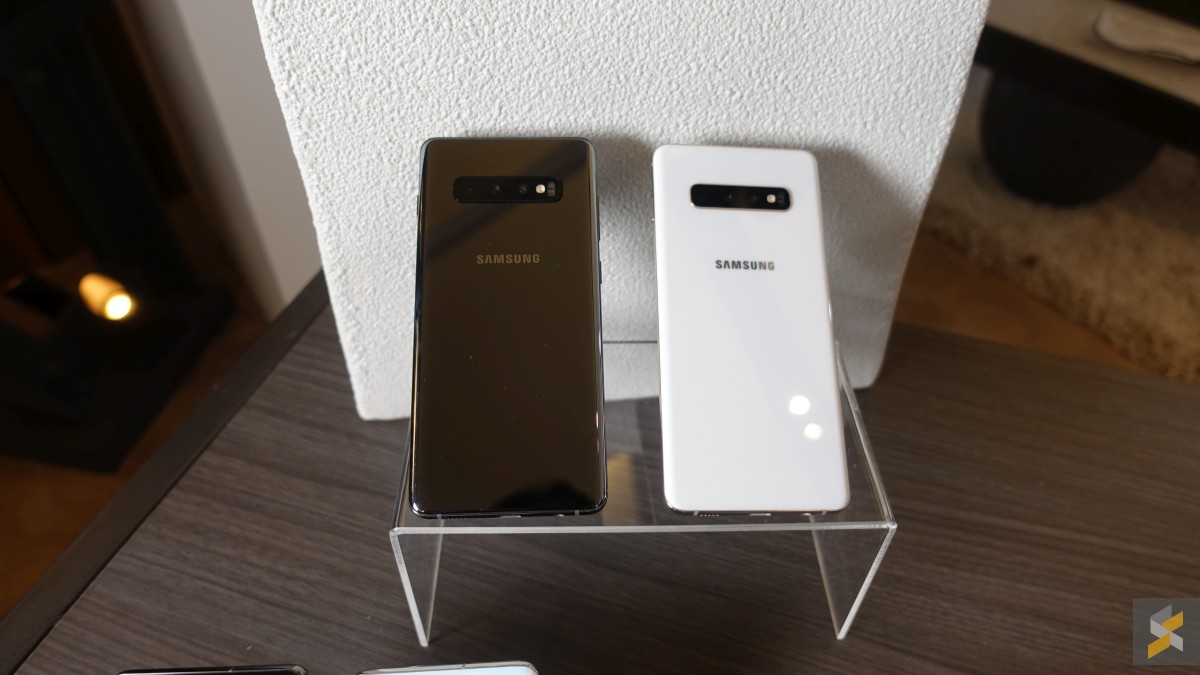
Augmenting these high-end specs, Samsung has also equipped the Galaxy S10 phones with intelligent performance features that leverage machine learning to improve performance over time. The handset is capable of automatically optimising battery, CPU, RAM and even device temperature based on how you use your phone. This then continues to get better over time as the smartphone gradually learns your usage habits, performing behind-the-scenes improvements like launching your most-used apps quicker. And, since we’re on the topic of AI, Bixby returns here with all the features you already expect from Samsung’s virtual assistant.
Speaking of battery optimisations, Samsung’s been pretty generous with the battery upgrade on their new Galaxy S flagships devices. On the small Galaxy S10, for example, you’re getting a 400 mAh bump up over the Galaxy S9, bringing total capacity to 3,400 mAh. However, the biggest difference comes with the Galaxy S10+, which now packs a 4,100 mAh battery — that’s even bigger than the one on the Galaxy Note 9!
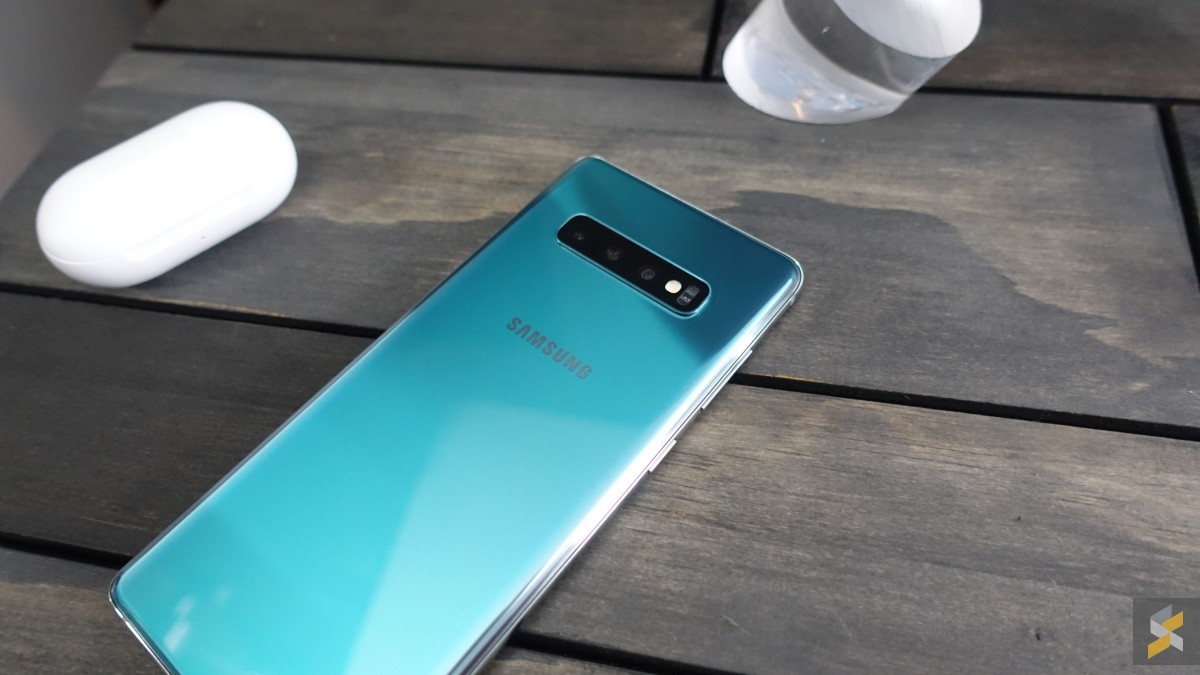
To top it all off, these bigger batteries still support fast wired (via USB-C) and fast wireless charging, with the latter being dubbed Fast Wireless Charging 2.0. That said, the most interesting thing about the Galaxy S10 and charging is the fact that the S10 comes with something called Wireless PowerShare. This essentially turns your handset into what is basically a wireless charger that can charge compatible devices. It’s very similar to the reverse wireless charging that debuted on the Huawei Mate 20, and I suspect that it will likely be just as gimmicky.
Next, we’ve got the new cameras on the Samsung Galaxy S10 and S10+. The main camera has always been a focal point for Samsung’s best smartphones, and that remains the same here, as these new devices up the ante to sport triple camera setups instead.
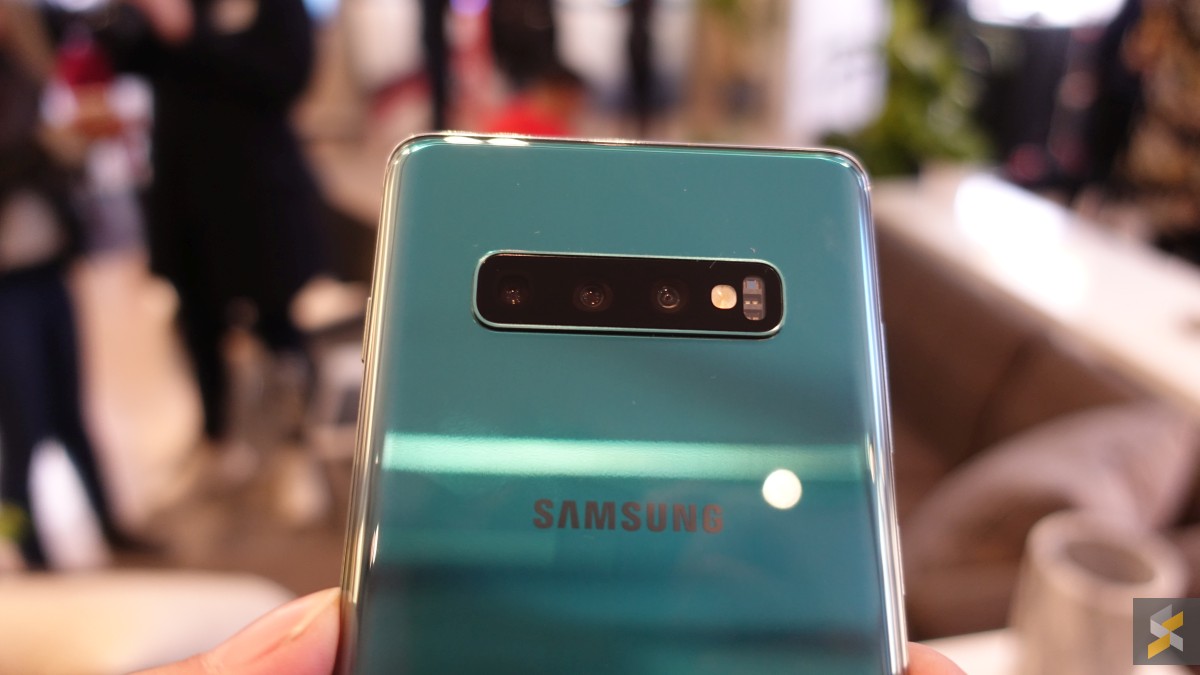
Now, the camera module consists of a 12MP main camera with a variable aperture lens (f/1.5-f/2.4), a 12MP telephoto camera with an f/2.4 aperture lens, and a third 16MP ultra-wide angled fixed focus lens (123-degree field of view). While both the 12MP cameras have optical image stabilisation (OIS) the 16MP ultra-wide does not.
Samsung has also equipped the Galaxy S10 duo with something called Super Steady. According to the company, it’s a form of digital stabilisation technology that can work “whether you’re dancing in the middle of an amazing concert or trying to record every detail of a bumpy bike ride”. Sounds impressive. Just as impressive as the fact that the main camera can shoot HDR10+ video. In the photo department, Samsung’s AI-powered Scene Optimiser makes a return too, but, on previous models, I’ve always felt that the pictures looked better with it off.
Up front, the two smartphones get different selfie setups. On the S10, there’s a single 10MP sensor with an f/1.9 aperture lens with AF capabilities. On the S10+, you get two cameras, as Samsung added a secondary “RGB Depth” 8MP camera (f/2.2, Fixed Focus) to the main 10MP selfie shooter.
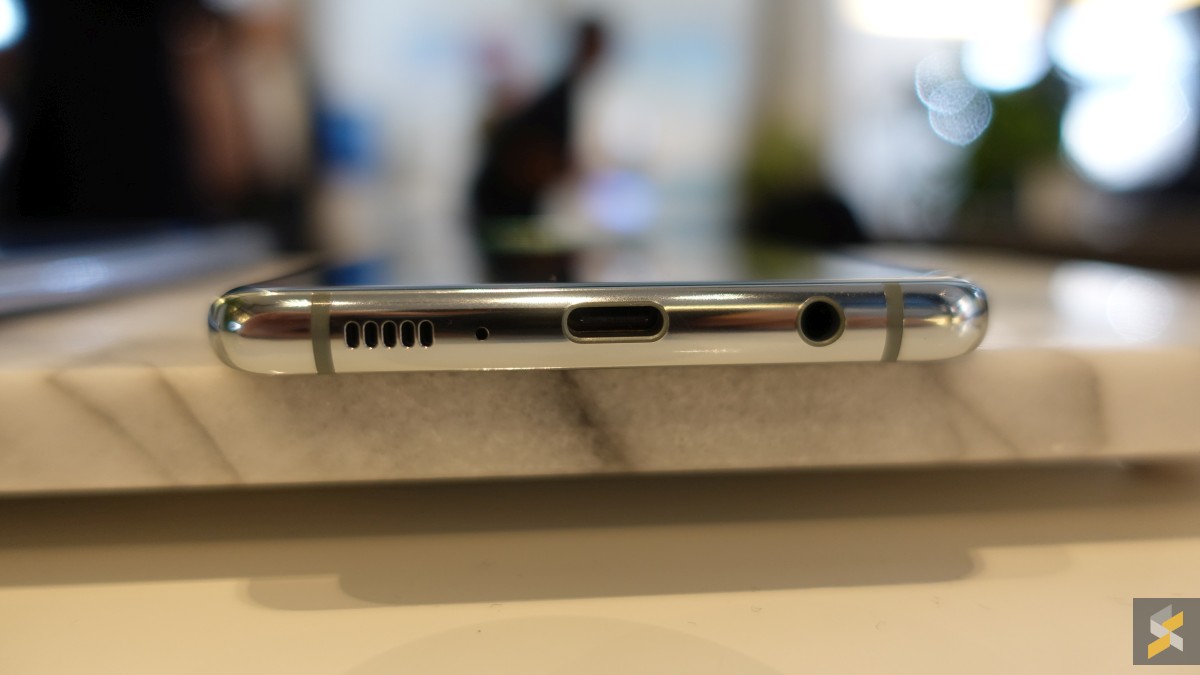
Alongside the new additions, Samsung’s also brought back a lot of the features we already liked on the Galaxy S9. The new Galaxy S10 devices still feature stereo speakers (tuned by AKG with Dolby Atmos surround sound), IP68 water and dust resistance (courtesy of that gorgeous glass and metal body), a 3.5mm headphone jack and microSD memory expansion (up to 512GB). Wireless connectivity has also been improved with 4×4 MIMO, up to 7CA, LAA, and LTE Cat 20, enabling up to 2Gbps download and 150Mbps upload speeds. It also sports 802.11ax WiFi, NFC, Bluetooth 5.0 and Samsung Pay.
For the Malaysian market, we’ll be getting both the S10 and S10+, but we’re only getting one memory configuration for the S10 and two for the S10+. On the S10, we’ll be getting the variant with 8GB of RAM and 128GB of storage (RM3,299). The larger S10+, on the other hand, can be yours with either 128GB of storage (RM3,699) or 512GB (RM4,599) of storage.
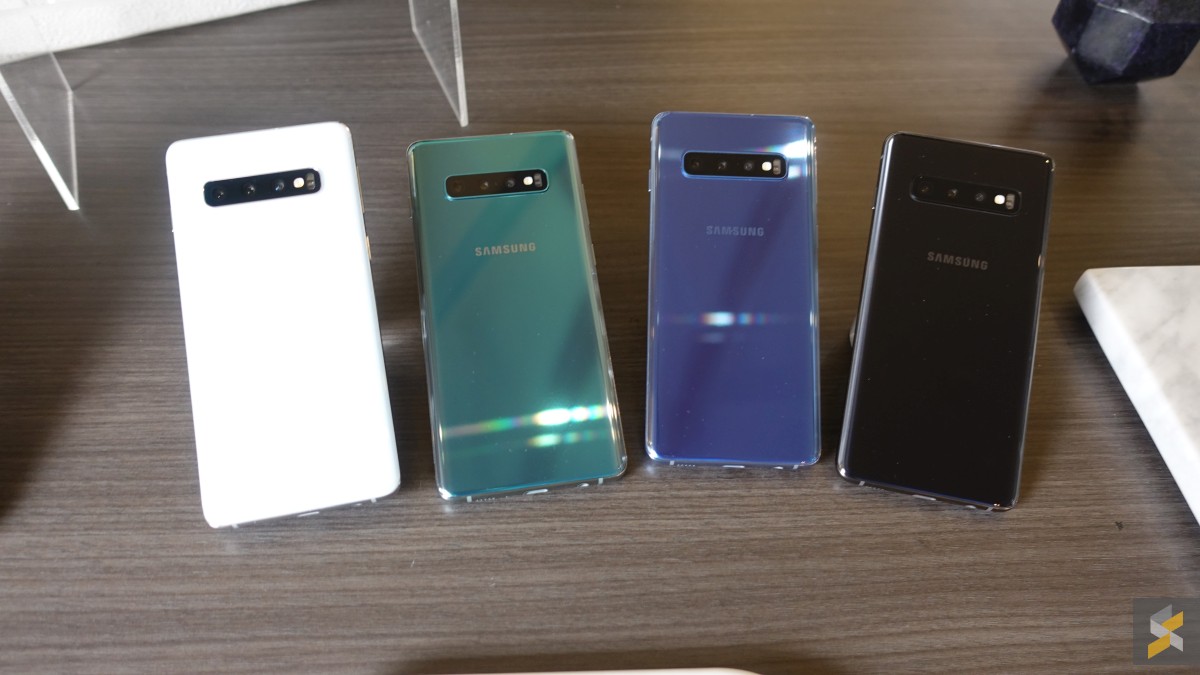
As far as colourways, we’ll be getting Prism Green, Prism Black and Prism White with the S10 while the S10+ will come in Prism Green, Prism Black, Prism White, Ceramic White (512GB) and Ceramic Black (512GB).
The Galaxy S10 and S10+ will be available for pre-order in Malaysia starting the 22nd of February 2019 at 10am, and will go on until the 28th of February while stocks last. If you pre-order a Galaxy S10 or S10+ (128GB) you’ll get a Galaxy Tab A 7.0, the Galaxy Buds, and a screen protection plan worth a total of RM1,289. If you pre-order the 512GB S10+, you’ll get a Galaxy Watch 42mm and a screen protection plan worth a total of RM1,479.
Now that’s an impressive spec-sheet by anyone’s standards, but what if you didn’t need all of that. What if you wanted a more affordable Galaxy S flagship that only kept the essentials? Well, that’s where the Galaxy S10e comes in.
Samsung Galaxy S10e
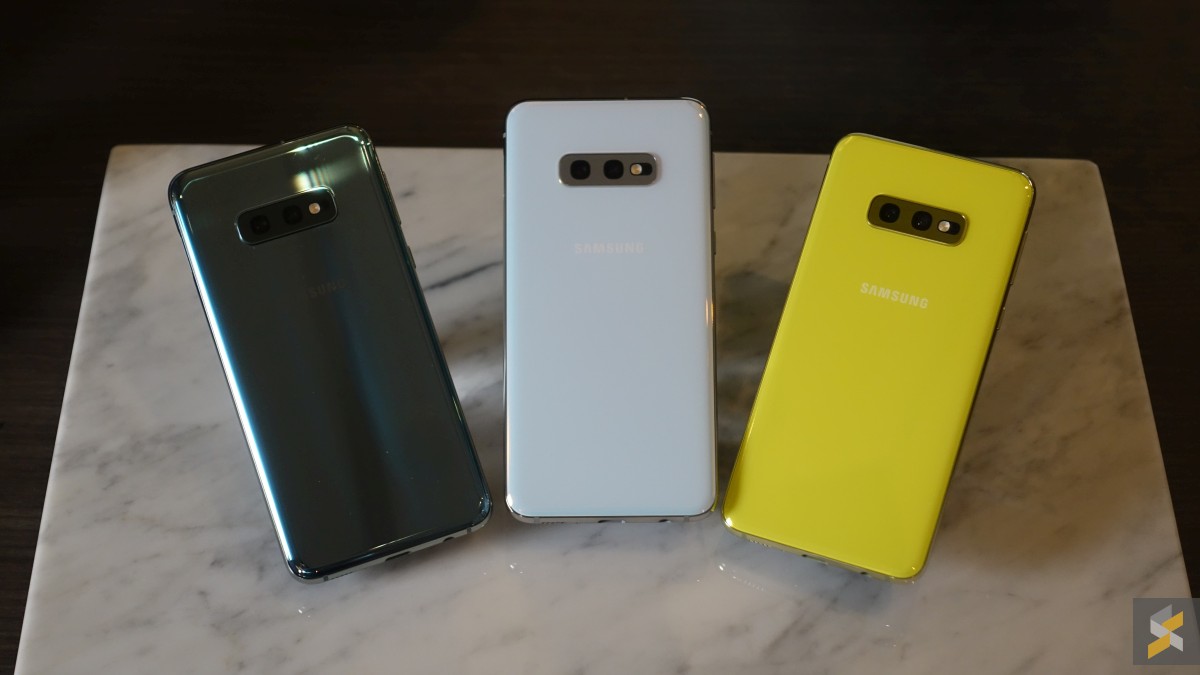
With this smartphone, Samsung’s goal was simple: Give people the essential Galaxy S experience, and nothing more, for a more affordable price. How affordable? Well, there hasn’t been a Galaxy S flagship that’s been priced under RM3,000 since the Galaxy S7. The Galaxy S10e is priced at RM2,699.
Despite the price cut, the Galaxy S10e seems to hold true to the company’s goal of providing just the essentials. It’s still powered by the Exynos 9820 processor, and it’s mated to either 6GB or 8GB of RAM, with either 128GB or 256GB of internal storage. Unfortunately, for the Malaysian market, we’re only getting the base model with 6GB of RAM and 128GB of storage, but those are still more than capable to give you a solid flagship experience.
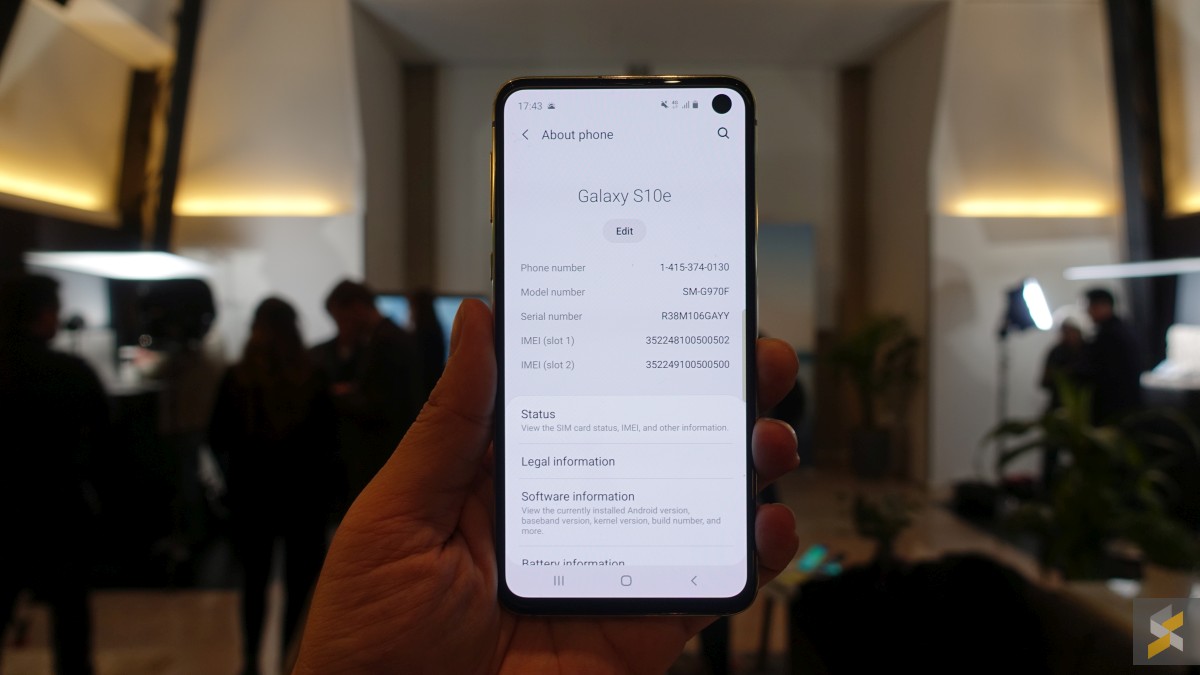
That being said, Samsung have definitely made a couple of compromises to keep the price low. The S10e’s screen, for example, is a 5.8″ Full HD+ Flat Dynamic AMOLED panel instead. This means the phone is really compact, but it also means you’re not getting that curved goodness that a Galaxy S flagship is so well known for these days.
Besides that, the S10e also has the smallest battery of the lot, coming in at just 3,100 mAh. However, it is worth noting that this cell is still bigger than the one on the S9, and the S10e also retains all the charging goodies of its bigger S10 brethren including Wireless PowerShare.
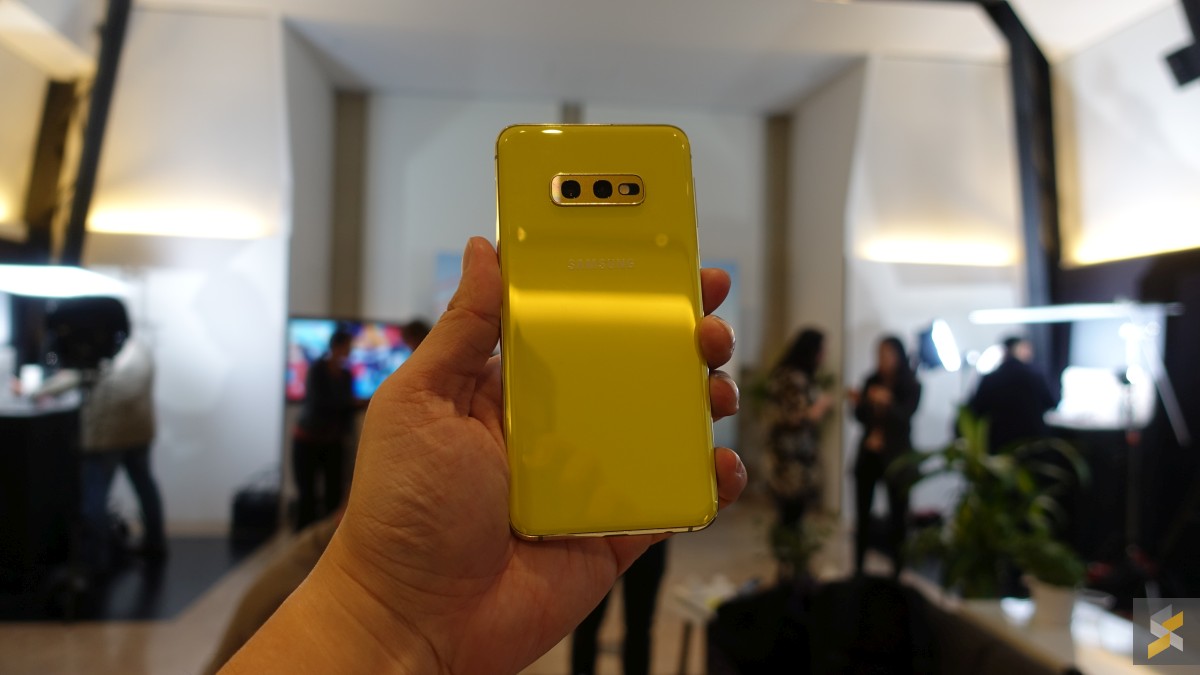
Over in the camera department, the Galaxy S10e features a dual camera instead of the triple camera on the S10 and S10+. Samsung chose to retain the main 12MP sensor and the 16MP ultra-wide, opting to ditch the 12MP telephoto instead. Honestly, this sounds like the best move in my opinion, and the fact that the hardware is identical means that you should expect very similar image quality as long as you don’t need to zoom in.
The final difference between the S10e and its larger brothers is its fingerprint scanner. Instead of an ultrasonic in-display one, the S10e settles for a regular side-mounted fingerprint scanner instead. This is a pretty peculiar placement because not only is it at the side, but it’s also really high up, forcing what I assume is a pretty significant shift in hand grip just to unlock the handset.
But beyond that, the differences basically come to an end. This means that if you can live with those strategic sacrifices, the Galaxy S10e could be the smartphone for you. You even get a special Canary Yellow colourway with this smaller handset that isn’t present on the other larger devices. The only problem is…Malaysia doesn’t get the Canary Yellow version, at least not yet.
The Samsung Galaxy S10e will be available for pre-order in Malaysia starting the 22nd of February 2019 at 10am, and will go on until the 28th of February while stocks last. Those who pre-order this device will receive a pair of Galaxy Buds and a screen protection plan worth RM639.
Samsung Galaxy S10 5G
This is the last handset Samsung unveiled alongside the Galaxy S10 trio. Unfortunately, this particular smartphone is shrouded in mystery as we only have a handful of specs to share with you.
These include its larger 6.7-inch Infinity-O display, a Samsung 3D Depth Camera for 3D image capturing to power something called “Video Live Focus and Automatic Ruler”, plus its 4,500 mAh battery with a 25W Super Fast Charging.
Assuming the rest of the specs are the same as the Galaxy S10+, this will definitely be the most formidable smartphone in this lineup. However, we don’t have any pricing or availability details at this moment.







